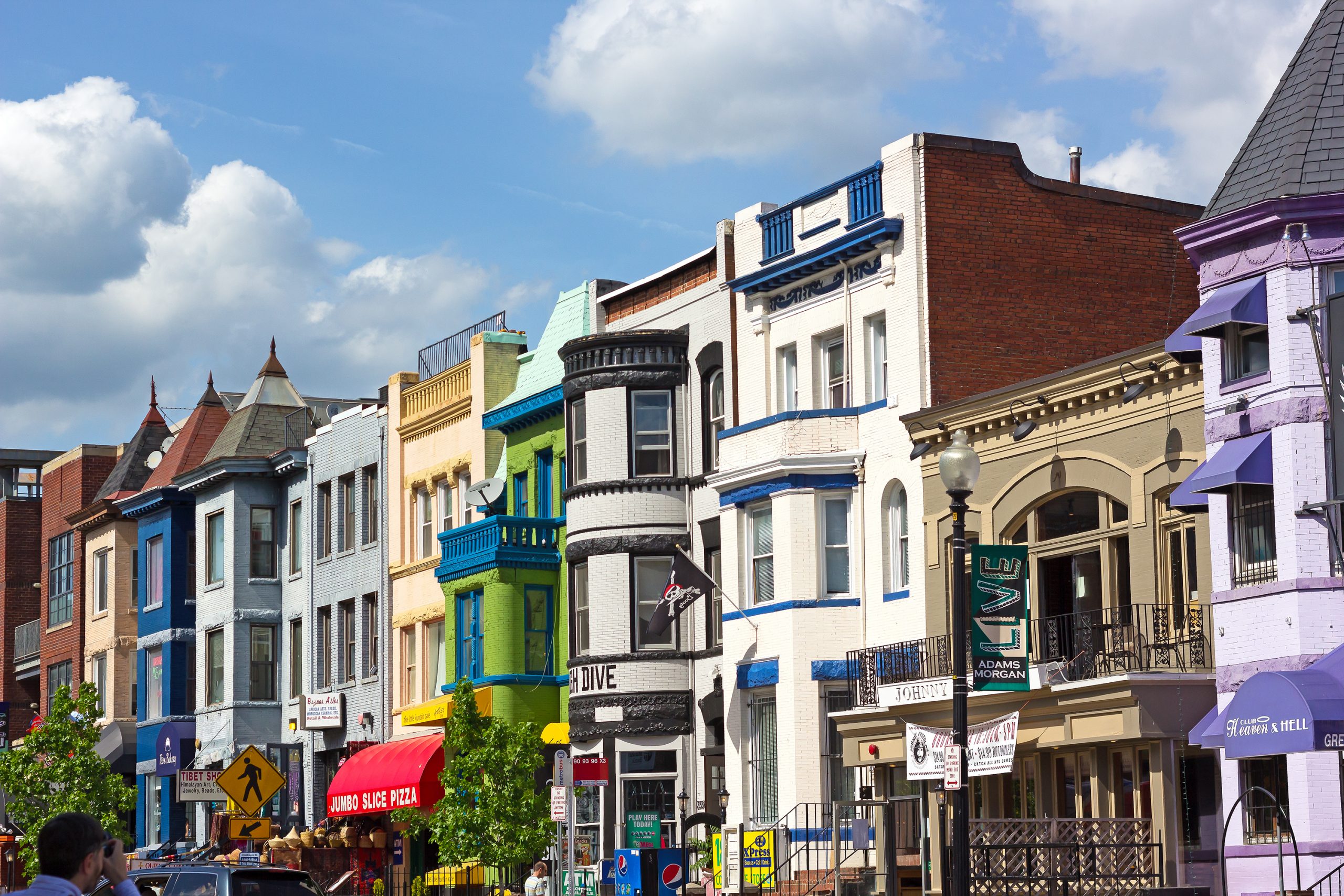
Bars, Bartending, Culture
How Bars and Bartenders Help the Political Machine Run in DC
By Andrew Turnwall

By Andrew Turnwall

The stage is lowly lit. Sitting around a table revolutionaries and founding fathers John Laurens, the Marquis de Lafayette, and Alexander Hamilton begin a toast. “Raise a glass to freedom,” They opine on their place in history, “And when our children tell our story, they’ll tell the story of tonight.” They take a drink.
True this is taking place on a stage in New York, representing a tavern in New York, but the message is the same either way: our political culture has always been tied to the drink. Thanks to the back-room dealings of people like Hamilton and James Madison and Thomas Jefferson that culture, those drinks, those stories, take place in Washington, DC.
A town with a history as robust and well-documented as Washington, DC’s is rife with stories not just about the founding of a nation, but with the drink that helped float it along. And float along it did. The Rhodes Tavern opened in 1799. For over a century, it served as a place of meeting and business for politicians and the like. When the British burned DC in 1814, Congress took to The Rhodes to assemble rather than not meet. The American people relying on their taverns and saloons after a British invasion is somewhat of a theme in our history.
Politicians relying on bars and taverns to conduct business is a similar practice that we’ve made regular. In the early 1900’s, Rum Row—the two mile stretch of Pennsylvania Ave. from the White House to the Capitol Building—housed 47 different bars, or roughly one every 200 feet. It was an opportune stretch of road that encompassed not only the houses of government but also the centers of journalism that reported on the same. Chief among these in those early days was a place opened by a Civil War vet named William Shoomaker. Shoomaker’s was quickly established as the unofficial “Third Wing of Congress” because of the frequency with which you would find politicians taking in a drink with one another, arguing policy, or just shouting one another down.
Shoomaker’s is also famous for crafting the District’s signature drink: The Rickey. Originally made by combining mineral water and half a lime’s worth of juice (peel included) to lobbyist (and eventual owner of Shoomaker’s) Joe Rickey’s favorite bourbon, the drink now comes with hundreds of twists and drops of personality from any bartender serving it. It has become so popular that DC has declared July to be Rickey Month, hosting contests built around the signature drink and its variations. This comes much to the chagrin of Joe Rickey, who hated having the drink named after him, almost as much as seeing its bourbon and whiskey replaced by gin.
Adding politics to the already chatty nature of bars and the loose lips liquor can inspire, bartenders in DC learn to walk a careful line. “You learn to keep your mouth shut,” says Derek Brown, owner of several of DC’s best bars and National Archives Chief Spirit Adviser. It’s a balance between keeping the peace, keeping from spilling state secrets, and giving public figures a moment of quiet. “One of the things that people cherish here is that there is that level of relative anonymity.” says Jim Hewes, who has been manning the Round Robin Bar at the Willard for 30 years. “Somebody spends five minutes up the street doing something and it’s all over the newspaper. I’ll have somebody sitting in the corner for six or seven hours holding court and nobody knows about it.”
Though bartenders like Hewes and Brown see the need to keep the peace, they also see fewer and fewer opportunities to do so. It seems politicians drink across the aisle less and less. In today’s world of hyper-polarized politics the talk at bars is more likely to filled by lobbyists than politicos sharing a drink. And it’s somewhat of a missed opportunity. From Brown once more, “Washington worked. And Washington drank. That Washington seemed infinitely more agreeable.”
Though Shoomaker’s and Rum Row are long gone from the streets of DC, their spirit remains. Patrons and citizens can still track down history all across the district, and bar crawl their way through the foundation of our nation’s history with drinking and its attachment to politics.
The Willard Hotel and its aforementioned Round Robin Bar for instance. From Derek Brown, “The Willard has such an illustrious history, and was certainly a drinking place for many people,” including but not limited to Martin Luther King Jr, Mark Twain, PT Barnum, and a host of DC’s political celebrities.
Or the 1331 Lounge, so named after the address of Shoomaker’s, who keep alive the legacy of Rum Row and the drinks created there.
While it doesn’t cater to the same political clientele it may once have, Off The Record still carries with it all the mystique and sense of occasion and presence that it carried when it was the go to destination for the nation’s political elite.
George Washington once described it as a “duty in drinking.” Grover Cleveland cut back his consumption to a bare gallon of beer a night the first time he ran for office. Thomas Jefferson spent nearly $300,000 dollars of today’s money filling out an extensive White House wine collection.
Drinking, and discussing politics over a drink, has always been a part of our culture as a nation, whether you’re a radio caller or a sitting United States Senator. As one journalist reported it, “At the tables in the restaurant far into the night will be found groups of politicians, members of the House of Representatives and Senators.” It was a way to burn off steam and come together to work on getting things done, or at least getting along, with people you ostensibly disagreed with on a level from simple policy to something more molecular in nature. It seem’s we’d all be better off with another cocktail. So, raise a glass to freedom, and let’s all have another round tonight.
Schedule 15mins to chat with a product specialist
Start a FREE Trial Today! BevSpot offers full product education and account setup for all customers! No card Information needed!
